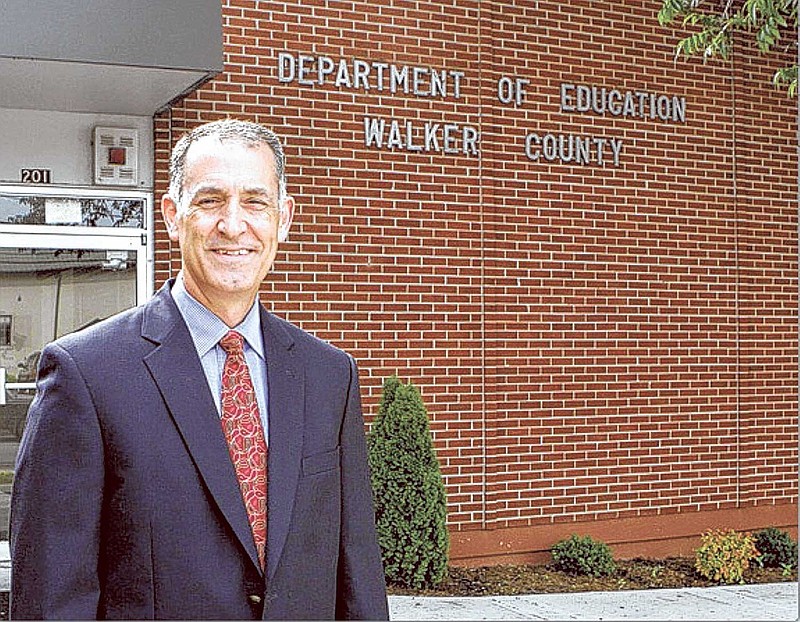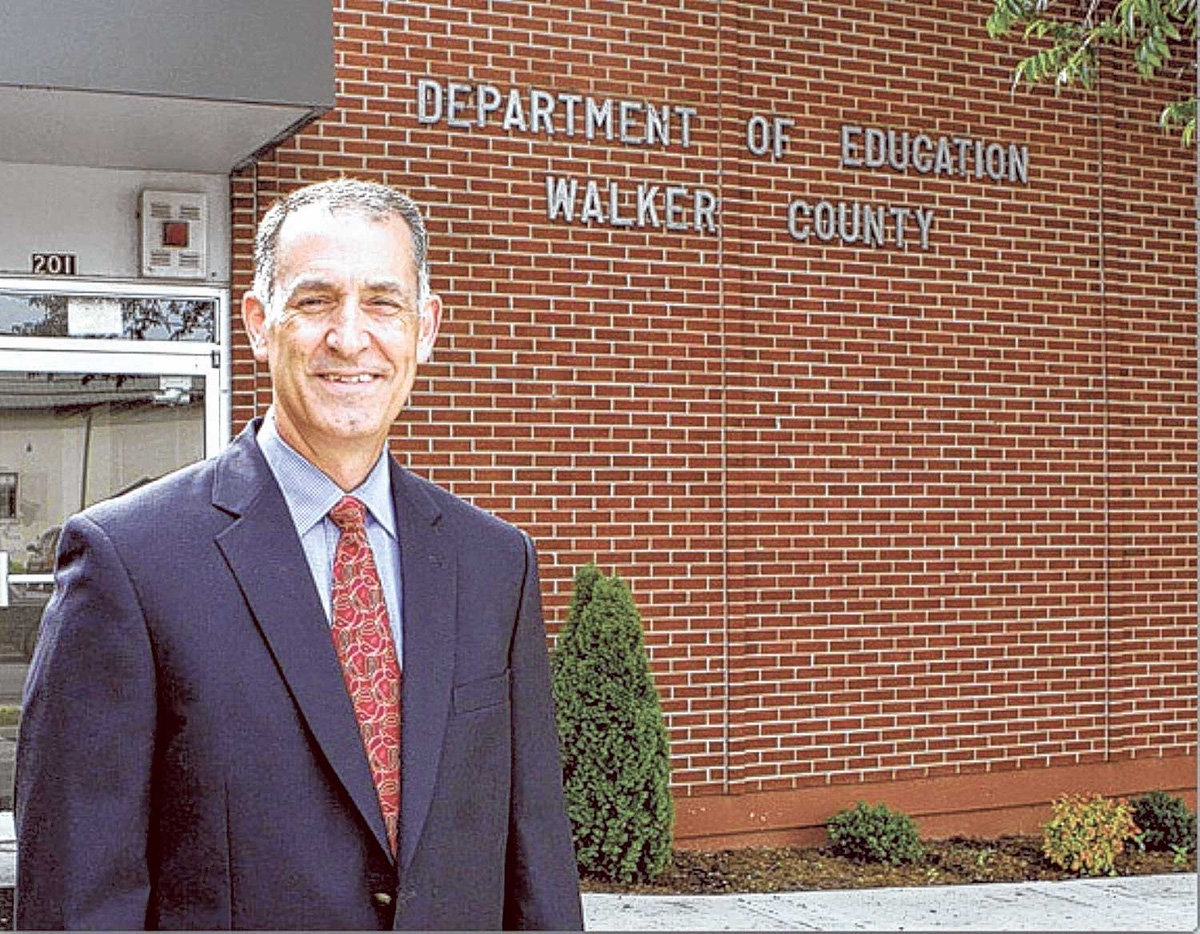Two weeks after Walker County Schools officials settled a lawsuit with a teacher over the board's public commenting policy, Superintendent Damon Raines issued a press release Friday afternoon. In it, he blamed the litigation for the fact that there is no longer a public commenting policy for school board meetings.
Jim Barrett, a middle school social studies teacher and president of the Walker County Association of Educators, sued the district in March 2015. He said the board's policy, which required potential speakers to first meet with Raines twice, violated the First Amendment.
Barrett won the case in U.S. District Court and the U.S. Court of Appeals for the 11th Circuit. A judge ordered the district to pay Barrett's lawyers' $330,000 in attorneys fees. The district also reached a settlement with Barrett, which has not been released to the public. (The Times Free Press filed an open records request for these documents on July 5. Raines said the same day the request was being processed.)
"The settlement agreement has left the Board of Education without a Public Participation Policy," Raines wrote in the release Friday afternoon.
Gerald Weber, one of Barrett's attorneys, argued that Raines' statement was disingenuous. The district is free to adopt a new policy, he said. The federal judges simply ruled that the previous public comment policy was unconstitutional.
"We gave them some examples of ones in neighboring school districts that operate perfectly well," Weber said.
In its ruling in October, the U.S. Court of Appeals justices said Walker County's public commenting policy was unconstitutional because it did not include a time frame for when, specifically, Raines had to meet with a prospective speaker the first time. In theory, a speaker could request to meet with Raines - and Raines could put it off forever, blocking the person from going before the board.
But in the press release, which includes a bullet point list of arguments about the case, Raines blamed Barrett and his lawyers for dragging he case out.
"The superintendent and Board Chair, representing the full Board, agreed to include a timeline in the policy during mediation at Federal Court in 2015," Raines wrote. "But, Plaintiff did not agree and would not relinquish his desire to address the Board regarding matters of personnel in an open meeting and bypass the required meeting with the superintendent."
Weber told the Times Free Press on Friday that Raines was not telling the truth about what occurred in mediation. But he would not go into details.
"There's false disclosure of negotiations that are supposed to be confidential," he said. "My understanding of our mediation process is that it was not supposed to be released to the public."
Raines also pointed out that the school district is not actually paying Barrett or his lawyers: The district's insurance company is. Weber countered that, one way or another, the case is going to cost taxpayers. Insurance rates could increase.
In addition to these arguments, Raines said that people rarely want to speak at board meetings anyway. Since he took the job in 2012, he said, only two people have asked to meet with him so they could then address the board. That included Barrett.
Even so, he said, Barrett was never blocked from speaking to the board. He was on the agenda to speak in early 2015, but the board cancelled the meeting because of bad weather. He was placed on the agenda for the next meeting, but he didn't show up. (By that point, Barrett previously told the Times Free Press, he was already forming his lawsuit.)
Concerning the fact that he could force a potential speaker to wait a long time, Raines said he scheduled a meeting with Barrett the same day he requested to speak.
"This completely dispels the continued comment of 'unbridled discretion' mentioned by Dr. Barrett and his legal team," Raines said.
(U.S. District Court Judge Harold Murphy ruled in April 2016 that the policy did give Raines "unbridled discretion;" the U.S. Court of Appeals agreed.)
"We've done all kinds of these public comment cases before," Weber said, estimating he has worked seven of them. "This is the longest one litigated. Most are resolved without litigation. It was a complete waste of money from the get go."


